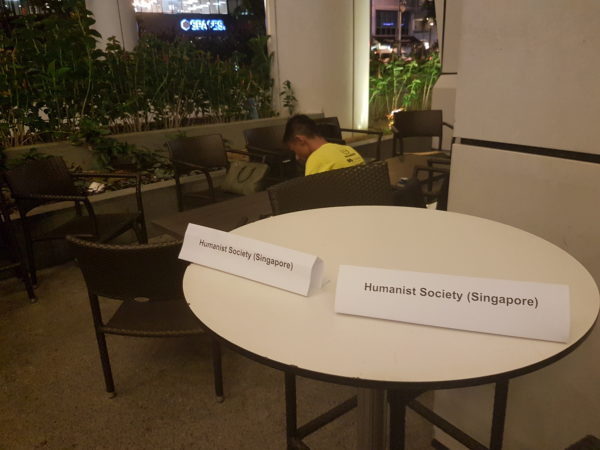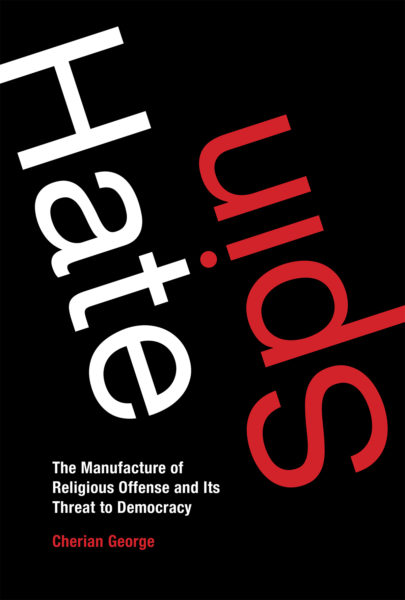On January 17, the Humanist Society (Singapore) organised a post-event discussion about the dangers that hate spin could pose to Singapore. We also invited members from the Leftwrite Center, including Mohamed Imran Mohamed Taib, who had already blogged about the new book. About 15-20 people took part in the discussion, which lasted about 1.5 hours.
Hate spin is defined by Dr Cherian George as a technique of contentious politics that involves the strategic use of offense-giving and offense-taking. Hate spin exploits democratic freedoms by harnessing group identities as a resource to attack and silence others. Unlike hate speech, hate spin deliberately manufactures indignation while masking itself in victimhood. (Read more about hate spin here).
Points brought up at the discussion
- Many Singaporeans cannot differentiate between hate speech and incitement to violence. Hate spinners have exploited this weakness among Singaporeans, leading to a lot of police reports over small matters. Until Singaporeans understand the difference, they will not be able to detect hate spin going on.
- Section 298a, which criminalises words or actions with a deliberate intent to wound religious feelings, is problematic because feelings cannot be measured objectively. Section 298 and 298a are archaic laws dating back to the colonial era. Singapore has inherited them from the British Indian Penal Code.
- Hate spin has been observed in the conflicts between pro-LGBT and anti-LGBT activists. For example, church leaders have mobilised church followers to write letters en masse (using pre-prepared templates) to their Members of Parliament / civil servants over perceived offenses from the LGBT community. For example, a book about gay penguins, And Tango Makes Three, was removed from libraries following complaints from anti-LGBT folks.
- Hate spin has also been observed among “social justice warriors” among the regressive left, with people taking unnecessary offense over small matters while policing micro-transgressions over the internet.
- It can be difficult to point out hate spinners without being accused as a hate spinner yourself. Following the removal of And Tango Makes Three from the libraries, there was a backlash from both the pro- and anti-LGBT communities. Who is the bigger hate spinner in this case?
- Although there are many laws protecting religious feelings, they do not confer the same protection to non-religious Singaporeans.
Suggested steps to stop hate spinners
- Identify grievances in each racial / religious community and tackle them before hate spinners can exploit and escalate it. After all, behind each successful hate spinning are real problems on the ground.
- Take part in interfaith dialogues and network across racial and religious lines. When you are targeted by hate spinners, friends from different religions / non-religious people can speak up on your behalf.
- Courageously expose the hypocrisy of hate spinners, such as the inconsistency of their offense-taking. This will involve a lot of persistent, detective work.
- Hopefully, with these steps taken, more and more people will see through the agenda of hate spinners and stop following them.
Hate Spin is available for sale at Singapore bookstores. The Society strongly recommends this book!






